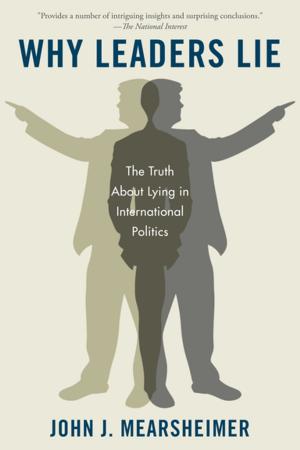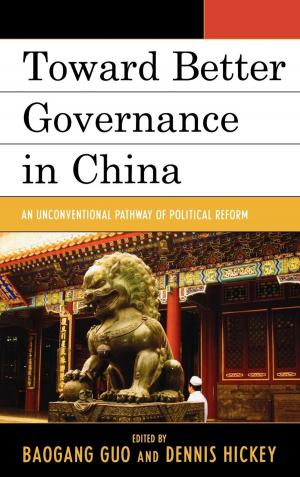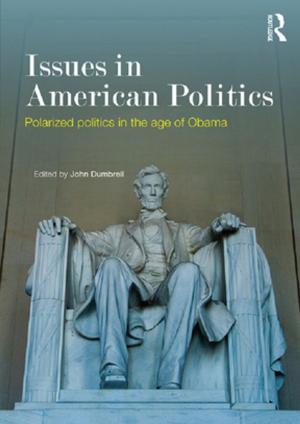Are You Stupid?
A Second Revolution Might Save America From Herself
Nonfiction, Social & Cultural Studies, Political Science, Politics, Practical Politics| Author: | Mihai Nadin | ISBN: | 9783939381617 |
| Publisher: | Synchron Publishers GmbH, Heidelberg | Publication: | July 4, 2013 |
| Imprint: | Language: | English |
| Author: | Mihai Nadin |
| ISBN: | 9783939381617 |
| Publisher: | Synchron Publishers GmbH, Heidelberg |
| Publication: | July 4, 2013 |
| Imprint: | |
| Language: | English |
After WWII, the world entered a phase of extreme dynamics. The USA outpaced all other countries. More than 50 years later, it no longer has the radical esprit that brought about its hegemony. Still, America of the information revolution remains the world’s only superpower. But as the necessity of change, expressed in a variety of systemic crises, accelerated, the USA fell into patterns of reactive politics similar to those that led to the downfall of the Soviet Union. Informed more by the past upon which modern America was erected, today the USA is now in a reactionary mode, often against dedication to her own welfare, freedom, and opportunity. Taking the rewards of change for granted, Americans do not understand—as the Soviets did not understand—what change entails. Gazing into the rear-view mirror (of religion, history, politics, economy) in the hope of seeing where change might take them, they get the illusion that they are in the driver’s seat. In the most individualistic society on Earth, the individual is subject to progressive disempowerment. The stupidity of living a life of false expectations and skewed values is surprising for a society emphasizing information and knowledge. Together with entitlement, corruption, and opportunistic engineering of reality, stupidity is the outcome of confusing opportunity with systemic risk. • Stupidity corresponds to dumbing-down across the social spectrum. Human character and potential are actively eroded despite spectacular progress in technology and science. Values are twisted, confusion is cultivated, self-delusion informs choices. • Entitlement is high at the extremes of the social continuum. The wealthy and powerful form an aristocracy that believes that money, privilege, the best of everything is theirs by right. The poor, often the recipients of social welfare, internalize as a permanent right temporary aid intended to help overcome difficulties. Between the extremes, the social continuum is dotted with various entitlements in education (as inadequate as it is), business (focused on profit and consumption), and financial innovation (entrusted to speculators). The right to entertainment arches over society, contributing to its increased mediocrity. • Corruption reflects the fact that America was founded not as a nation but as an economy. This translates into 1) a government in servitude to the economy; and 2) a consumer profile with no civic dimension. Missing is the sense of responsibility without which freedom is meaningless. • Engineering reality describes the process through which realities are conceived and produced according to convenience and opportunistic predicaments. Goals (the right to carry arms, a house for everyone, free contraceptives, etc.) sanctify the means. Often, theories create “realities.” “Truths” (such as possible threats) are constructed to fit preconceived plans (e.g. wars). The USA was founded in a world more similar to the 1st century than the 21st, and the Constitution—its operating manual—reflects this reality. A “second American Revolution”— not of pitchforks, but of principles—means a second Convention, this time representative of all the people, not only the few who called themselves “We the People.” Its goal should be to provide a foundation for life and work under circumstances of fast change. In an integrated world of opportunities and risks associated with the global information age, Americans will have to fight their own stupidity, instead of fighting the world they depend on for maintaining their prosperity. Under circumstances of fast cycles of discovery and innovation, freedom and opportunity result from informed engagement, not from indulgence at the expense of the rest of humankind. The process of remaking America will also remake Americans, as responsible citizens of the world. Addressing sustainability is different from being addicted consumers expecting more prosperity at no matter whose expense.
After WWII, the world entered a phase of extreme dynamics. The USA outpaced all other countries. More than 50 years later, it no longer has the radical esprit that brought about its hegemony. Still, America of the information revolution remains the world’s only superpower. But as the necessity of change, expressed in a variety of systemic crises, accelerated, the USA fell into patterns of reactive politics similar to those that led to the downfall of the Soviet Union. Informed more by the past upon which modern America was erected, today the USA is now in a reactionary mode, often against dedication to her own welfare, freedom, and opportunity. Taking the rewards of change for granted, Americans do not understand—as the Soviets did not understand—what change entails. Gazing into the rear-view mirror (of religion, history, politics, economy) in the hope of seeing where change might take them, they get the illusion that they are in the driver’s seat. In the most individualistic society on Earth, the individual is subject to progressive disempowerment. The stupidity of living a life of false expectations and skewed values is surprising for a society emphasizing information and knowledge. Together with entitlement, corruption, and opportunistic engineering of reality, stupidity is the outcome of confusing opportunity with systemic risk. • Stupidity corresponds to dumbing-down across the social spectrum. Human character and potential are actively eroded despite spectacular progress in technology and science. Values are twisted, confusion is cultivated, self-delusion informs choices. • Entitlement is high at the extremes of the social continuum. The wealthy and powerful form an aristocracy that believes that money, privilege, the best of everything is theirs by right. The poor, often the recipients of social welfare, internalize as a permanent right temporary aid intended to help overcome difficulties. Between the extremes, the social continuum is dotted with various entitlements in education (as inadequate as it is), business (focused on profit and consumption), and financial innovation (entrusted to speculators). The right to entertainment arches over society, contributing to its increased mediocrity. • Corruption reflects the fact that America was founded not as a nation but as an economy. This translates into 1) a government in servitude to the economy; and 2) a consumer profile with no civic dimension. Missing is the sense of responsibility without which freedom is meaningless. • Engineering reality describes the process through which realities are conceived and produced according to convenience and opportunistic predicaments. Goals (the right to carry arms, a house for everyone, free contraceptives, etc.) sanctify the means. Often, theories create “realities.” “Truths” (such as possible threats) are constructed to fit preconceived plans (e.g. wars). The USA was founded in a world more similar to the 1st century than the 21st, and the Constitution—its operating manual—reflects this reality. A “second American Revolution”— not of pitchforks, but of principles—means a second Convention, this time representative of all the people, not only the few who called themselves “We the People.” Its goal should be to provide a foundation for life and work under circumstances of fast change. In an integrated world of opportunities and risks associated with the global information age, Americans will have to fight their own stupidity, instead of fighting the world they depend on for maintaining their prosperity. Under circumstances of fast cycles of discovery and innovation, freedom and opportunity result from informed engagement, not from indulgence at the expense of the rest of humankind. The process of remaking America will also remake Americans, as responsible citizens of the world. Addressing sustainability is different from being addicted consumers expecting more prosperity at no matter whose expense.















